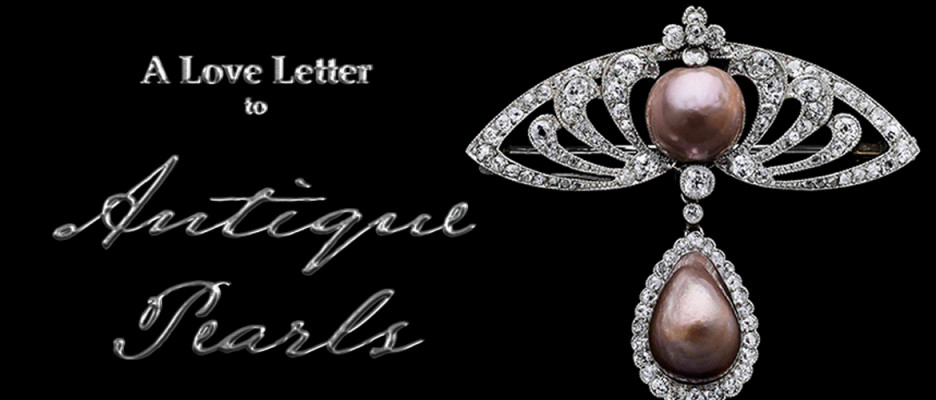
Above Piece: Brooch, Natural Brown Pearls set in Platinum and Diamonds. France, 1900. © Albion Art
Estate jewellery is a polite term for previously owned jewellery. They have a unique history, a legacy—serving as witnesses of the greatest design periods of history. Here, we present one-of-a-kind magnificent estate antique pearl jewellery created in the 18th to early 20th century.
I. Georgian Period spans from 1714-1837 and is named after the four successive English Kings George I through IV.
Above: Earrings, gold with natural seed pearls and diamonds. France, 1795-1810 © Victoria and Albert Museum, London
Natural seed pearl jewellery became very fashionable at the beginning of the 19th century, especially among the growing middle classes. Small pearls were not only less costly, but they were also available in quantity. Seed pearl jewellery, usually less than 2 millimeters in diameter, was considered genteel. It was considered the ‘most becoming jewellery that a lady can wear”.
_________________
“I only like antique jewelry because I like the stories attached to them. I like to know who was wearing them. It’s the life of people that interests me. Also, they are beautiful.”
Miuccia Prada
___________
II. Victorian Period is named after Queen Victoria, a great lover of pearls, who ruled Britain from 1837 to 1901. Pearls combined with diamonds were highly sought-after.

Victorian Natural Pearl & Diamond Necklace, circa 1850. ($ 85,000 at www.sheilagoldfinger.com)
This magnificent Early Romantic Victorian (1837-1850) necklace contains 7 off-white baroque-drop natural pearls and diamonds. The large expanse of cleavage afforded by the then highly fashionable evening gowns provided the perfect backdrop for these elaborate necklaces.
Swags, garlands, bows, hearts, and tassels were favored motifs in jewellery design during this period.
-
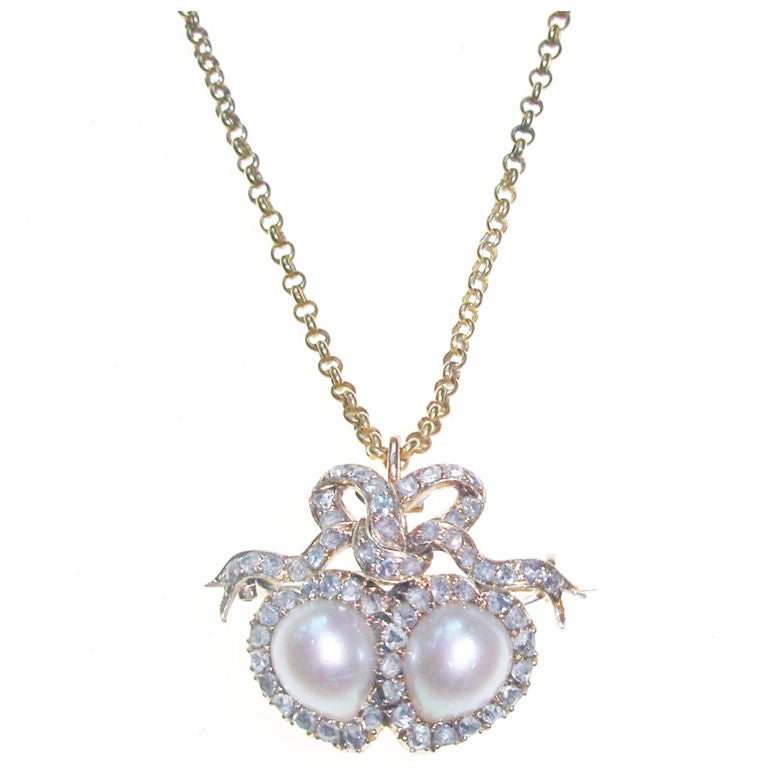
Victorian Natural Pearl and Diamond Double Heart Pendant/Brooch, circa 1880
(Price per request at www.sandracronan.com)
Extraordinarily versatile, this Grand Mid-Victorian (1860-1880) piece has a fitting that screw onto the back so the piece can be worn as a brooch, or taken off making it a pendant.
-

Victorian Natural Pearl Diamond Gold Silver Earrings, circa 1880
($ 17,000 at www.sheilagoldfinger.com)
During this period, earrings, often with pearl drops, tended to become longer due to hair being worn away from ears.
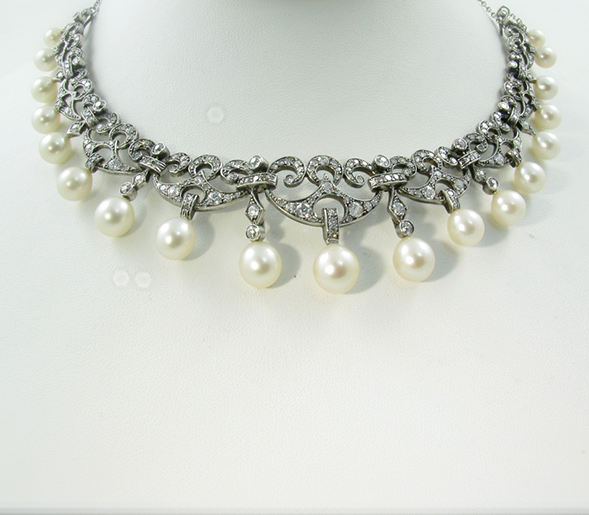
An antique silver topped gold, diamond and pearl necklace/tiara. Circa 1900. (Price per request at Camilla Dietz Bergeron Ltd.)
Above, this Late Aesthetic Victorian (1885-1901) necklace has a contemporary detachable chain and may be worn as a tiara. Hair ornaments such as tiaras were very popular in this era. In the past, tiaras were symbols of everlasting love, often given by the groom to the bride and eventually, they were worn to display wealth.
To be continued in Part 2…
Photographs Courtesy of V& A Museum, Camilla Dietz Bergeron Ltd, Sheila Goldfinger Antique and Estate Jewelry, and Sandra Cronan Ltd..
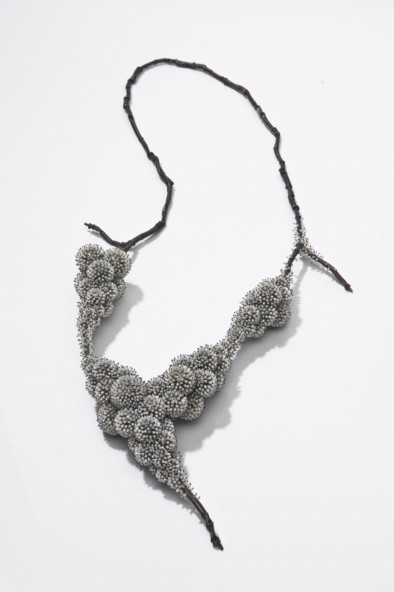
Frozen, Silver, nylon, freshwater pearls,
Sam Tho Duong, 2011
Tags: popular
5 Response to The “Estate Pearl Jewellery (Part 1)”
Comments are closed.


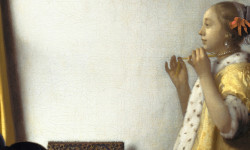
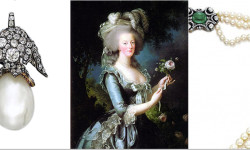
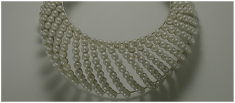
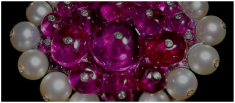
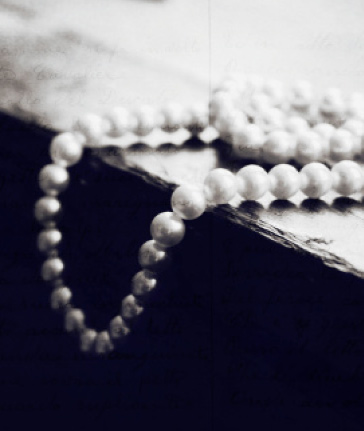
Pearl Jewellery can uses in any occasions and any purposes. It can helps to carry you and your looks with the proper occasions. So thanks to post this nice and beautiful collections of jewellery.
[…] Read more… […]
Beautiful display of pieces to illustrate the evolution of the use of pearls through some of most important periods of history. The creativity around the pearl and its integration in jewelry seem to have no limit.
I am for the first time here.I found this blog and these beautiful jewellery.Thanks for posting these pictures.
All designs are very pretty. Pearl jewellery is really looking very beautiful and that is the reason that most people love this. This jewellery is easily mixed with any other material and fitted with every outfit so in any occasion it is in trend. It is available in a number of designs and colors and its price is also reasonable so all ages people like this.